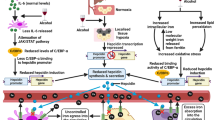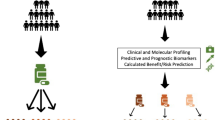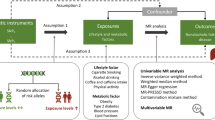Abstract
Epidemiological studies have demonstrated a variety of potential environmental factors that may alter susceptibility to chronic pancreatitis (CP) through oxidative/xenobiotic stress; however, a direct causal and mechanistic role has not been established. We aimed (1) to determine the prevalence of functional genetic polymorphisms in the antioxidant enzymes, glutathione S-transferase GSTM-1, GSTP-1, and GSTT-1, manganese superoxide dismutase, and catalase in CP and (2) to reveal evidence of oxidative stress in patients with CP by measuring whole-blood glutathione redox status. In total, 122 patients with CP (75 alcohol-induced [AlCP], 33 idiopathic [ICP], and 13 hereditary) and 245 age- and sex-matched controls were recruited. The prevalence of the functional GSTT-1 genotype (GSTT-1*A) was significantly higher in CP (88.5%) compared to healthy controls (76%; χ2 = 7.26, P = 0.007). Stratification to disease etiology demonstrated that the GSTT-1*A genotype was also significantly more prevalent among patients with ICP (94%; P = 0.02; 95% CI, 0.04–9.16) but not in those with AlCP. In 22 patients with stable CP, the whole-blood glutathione concentration (median [IQR]: 72 μmol/L [21–181 μmol/L]) and the glutathione redox ratio (GSH/GSSG) (median [IQR]: 9 (3–77]) were significantly reduced compared to those in 20 healthy volunteers (median [IQR]: 815 μmol/L [679–1148 μmol/L], P < 0.001, and 96 [52–347], P = 0.005, respectively). We conclude that the GSTT-1 functional genotype is associated with ICP. Evidence of altered glutathione redox status suggests that this disease modification may be a consequence of oxidative stress or the bioactivation of xenobiotics.
Similar content being viewed by others
References
Maisonneuve P, Lowenfels AB: Chronic pancreatitis and pancreatic cancer. Dig Dis 20(1):{3}2–37, 2002
Bourliere M, Barthet M, Berthezene P, et al.: Is tobacco a risk factor for chronic pancreatitis and alcoholic cirrhosis? Gut 32(11):1392–1395, 1991
Loft S, Poulsen HE: Cancer risk and oxidative DNA damage in man. J Mol Med 74(6):297–312, 1996
Kadlubar FF, Anderson KE, Haussermann S, et al.; Comparison of DNA adduct levels associated with oxidative stress in human pancreas. Mutat Res 405(2):125–133, 1998
Li D: Molecular epidemiology of pancreatic cancer. Cancer J 7(4):259–265, 2001
Wang M, Abbruzzese JL, Friess H, Hittelman WN, Evans DB, Abbruzzese MC, Chiao P, Li D: DNA adducts in human pancreatic tissues and their potential role in carcinogenesis Cancer Res 58(1):38–41, 1998
Li D, Firozi PF, Zhang W, Shen J, DiGiovanni J, Lau S, Evans D, Friess H, Hassan M, Abbruzzese JL: DNA adducts, genetic polymorphisms, and K-ras mutation in human pancreatic cancer. Mutat Res 513(1–2):37–48, 2002
Cullen JJ, Mitros FA, Oberley LW: Expression of antioxidant enzymes in diseases of the human pancreas: another link between chronic pancreatitis and pancreatic cancer. Pancreas 26(1):23–27, 2003
Halliwell B, Gutteridge JM: Free radicals and antioxidant protection: mechanisms and significance in toxicology and disease. Hum Toxicol 7(1){:}7–13, 1988
Rahman SH, Ibrahim K, Larvin M, Kingsnorth A, McMahon MJ: Association of antioxidant enzyme gene polymorphisms and glutathione status with severe acute pancreatitis. Gastroenterology 126:1312–1322, 2004
Siedegard J, Vorachek WR, Pero RW, et al.: Hereditary differences in the expression of human glutathione transferase active on trans-stilbene oxide are due to a gene deletion. Proc Natl Acad Sci USA 85:7293–7297, 1988
Pemble S, Schroeder KR, Spencer SR, et al.: Human glutathione S-transferase theta (GSTT1): cDNA cloning and the characterization of a genetic polymorphism. Biochem J 300:271–276, 1994
Ahmad H, Wilson DE, Fritz RR, Singh SV, Medh RD, Nagle GT, Awasthi YC, Kurosky A: Primary and secondary structural analyses of glutathione S-transferase pi from human placenta. Arch Biochem Biophys 278(2):398–408, 1990
Ali-Osman F, Akande O, Antoun G, Mao JX, Buolamwini J: Molecular cloning, characterization, and expression in Escherichia coli of full-length cDNAs of three human glutathione S-transferase pi gene variants. Evidence for differential catalytic activity of the encoded proteins. J Biol Chem 272(15):10004–10012, 1997
Zimniak P, Nanduri B, Pikula S, Bandorowicz-Pikula J, Singhal SS, Srivastava SK, Awasthi S, Awasthi YC: Naturally occurring human glutathione S-transferase GSTP1-1 isoforms with isoleucine and valine in position 104 differ in enzymic properties. Eur J Biochem 224(3):893–899, 1994
Sundberg K, Johansson AS, Stenberg G, Widersten M, Seidel A, Mannervik B, Jernstrom B: Differences in the catalytic efficiencies of allelic variants of glutathione transferase P1-1 towards carcinogenic diol epoxides of polycyclic aromatic hydrocarbons. Carcinogenesis 19(3):433–436, 1998
Harries LW, Stubbins MJ, Forman D, Howard GC, Wolf CR: Identification of genetic polymorphisms at the glutathione S-transferase Pi locus and association with susceptibility to bladder, testicular and prostate cancer. Carcinogenesis 18(4):641–644, 1997
Shimoda-Matsubayashi S, Matsumine H, Kobayashi T, et al.: Structural dimorphism in the mitochondrial targeting sequence in the human manganese superoxide dismutase gene. A predictive evidence for conformational change to influence mitochondrial transport and a study of allelic association in Parkinson’s disease. Biochem Biophys Res Commun 226(2){:}561–565, 1996
Forsberg L, Lyrenas L, de Faire U, et al.: A common functional C–T substitution polymorphism in the promoter region of the human catalase gene influences transcription factor binding, reporter gene transcription and is correlated to blood catalase levels. Free Rad Biol Med 30(5):500–505, 2001
Etemad B, Whitcomb DC: Chronic pancreatitis: diagnosis, classification and new genetic developments. Gastroenterology 120:682–707, 2001
Wilson MH, Grant PJ, Hardie LJ, et al.: Glutathione S-transferase M1 null genotype is associated with a decreased risk of myocardial infarction. FASEB 14:791–796, 2000
Mattey DL, Hassell AB, Plant M, et al.: Association of polymorphism in glutathione S-transferase loci with susceptibility: comparison with the shared epitope. Ann Rheum Dis 58:164–169, 1999
Garcia-Closas M, Kelsey KT, Hankinson SE, et al.: Glutathione S-transferase mu and theta polymorphisms and breast cancer susceptibility. J Natl Cancer Inst 91:1960–1694, 1999
Katoh T, Inatomi H, Kim H, et al.: Effects of glutathione S-transferase (GST) M1 and GSTT1 genotypes on urothelial cancer risk. Cancer Lett 132:147–152, 1998
Kim W-J, Kim H, Kim C-H, et al.: GSTT1-Null genotype is a protective factor against bladder cancer. Urology 60:913–918, 2002
Nelson HH, Wiencke JK, Christiani DC, et al.: Ethnic differences in the prevalence of the homozygous deleted genotype of glutathione-S-transferase theta. Carcinogenesis 16:1243–1245, 1995
Bartsch H, Malaveille C, Lowenfels AB, et al.: Genetic polymorphism of N-acetyltransferases, glutathione S-transferase M1 and NAD(P)H: quinone oxidoreductase in relation to malignant and benign pancreatic disease risk. The International Pancreatic Disease Study Group. Eur J Cancer Prev 7(3):215–223, 1998
Frenzer A, Butler WJ, Norton ID, et al.: Polymorphism in alcohol–metabolizing enzymes, glutathione S-transferases and apolipoprotein E and susceptibility to alcohol-induced cirrhosis and chronic pancreatitis. J Gastroenterol Hepatol 17(2):177–182, 2002
Loguerico C, Blanco FD, De Girolamo V, et al.: Ethanol consumption, amino acid and glutathione blood levels in patients with and without chronic liver disease. Alcohol Clin Exp Res 23(11):1780–1784, 1999
Coll O, Collel A, Garcia-Ruiz C, et al.: Sensitivity of the 2-oxoglutarate carrier to alcohol intake contributes to mitochondrial glutathione depletion. Hepatology 38(3):692–702, 2003
Zhou JF, Chen P: Studies on the oxidative stress in alcohol abusers in China. Biomed Environ Sci 14(3):180–188, 2001
Rowe JD, Nieves E, Listowsky I: Subunit diversity and tissue distribution of human glutathione-S-transferases: interpretations based on electrospray ionization-MS and peptide sequence-specific antisera. Biochem J 325:481–486, 1997
March TH, Jeffery EH, Wallig MA: Characterization of rat pancreatic glutathione S-transferases by chromatofocusing, reverse-phase high performance liquid chromatography, and immunohistochemistry. Pancreas 17:217–228, 1998
Moore MA, Makino T, Tsuchida S, et al.: Altered drug metabolising potential of acinar cell lesions induced in rat pancreas by hydroxyaminoquinoline 1-oxide. Carcinogenesis 8:1089–1094, 1987
Meyer DJ, Coles B, Pemble SE, et al.: Theta, a new class of glutathione transferases purified from rat and man. Biochem J 274:409–414, 1991
Mannervik B, Awasthi YC, Board PG, et al.: Nomenclature for human glutathione transferases. Biochem J 282:305–308, 1992
Kraus P, Kloft HD: The activity of glutathione-S-transferases in various organs of the rat. Enzyme 25(3):158–160, 1980
Kaplowitz N: Physiological significance of glutathione S-transferases. Am J Physiol 239:G444, 1980
Baron J, Voigt JM, Whitter TB, et al.: Identification of intratissue sites for xenobiotic activation and detoxication. Adv Exp Med Biol 197:119–144, 1986
Schulz HU, Niederau C: Oxidative stress induced changes in pancreatic acinar cells: insights from in vitro studies. Hepato–Gastroenterology 41:309–312, 1994
Landi S: Mammalian class theta GST and differential susceptibility to carcinogens: a review. Mutat Res 463(3):247–283, 2000
Monks TJ, Lau SS: The pharmacology and toxicology of polyphenolic-glutathione conjugates. Annu Rev Pharmacol Toxicol 38:229–255, 1998
Schoenberg MH, Buchler M, Pietrzyk C, et al.: Lipid peroxidation and glutathione metabolism in chronic pancreatitis. Pancreas 10(1):36–43, 1995
Braganza JM: The pathogenesis of chronic pancreatitis. QJM 89(4):243–250, 1996
Sandle LN, Braganza JM: An evaluation of the low-pH enzymatic assay of urinary D-glucaric acid, and its use as a marker of enzyme induction in exocrine pancreatic disease. Clin Chim Acta 162(3):245–256, 1987
Whitcomb DC, Gorry MC, Preston RA, et al.: Hereditary pancreatitis is caused by a mutation in the cationic trypsinogen gene. Nat Genet 14:141–145, 1996
Witt H, Luck W, Hennies HC, et al.: Mutations in the gene encoding the serine protease inhibitor, Kazal type 1 are associated with chronic pancreatitis. Nat Genet 25:213–216, 2000
Pfützer RH, Barmada MM, Brunskill APJ, et al.: SPINK1/PSTI polymorphisms act as disease modifiers in familial and idiopathic chronic pancreatitis. Gastroenterology 119:615–623, 2000
Sharer N, Schwarz M, Malone G, et al.: Mutations of the cystic fibrosis gene in patients with chronic pancreatitis. N Engl J Med 339:645–652, 1998
Cohn JA, Friedman KJ, Noone PG, et al.: Relation between mutations of the cystic fibrosis gene and idiopathic pancreatitis. N Engl J Med 339:653–658, 1998
Threadgold J, Greenhalf W, Ellis I, et al.: The N34S mutation of SPINK1 (PSTI) is associated with a familial pattern of idiopathic chronic pancreatitis but does not cause the disease. Gut 50(5):675–681, 2002
Author information
Authors and Affiliations
Corresponding author
Rights and permissions
About this article
Cite this article
Rahman, S.H., Nanny, C., Ibrahim, K. et al. Genetic Polymorphisms of GSTT1, GSTM1, GSTP1, MnSOD, and Catalase in Nonhereditary Chronic Pancreatitis: Evidence of Xenobiotic Stress and Impaired Antioxidant Capacity. Dig Dis Sci 50, 1376–1383 (2005). https://doi.org/10.1007/s10620-005-2790-7
Received:
Accepted:
Issue Date:
DOI: https://doi.org/10.1007/s10620-005-2790-7




